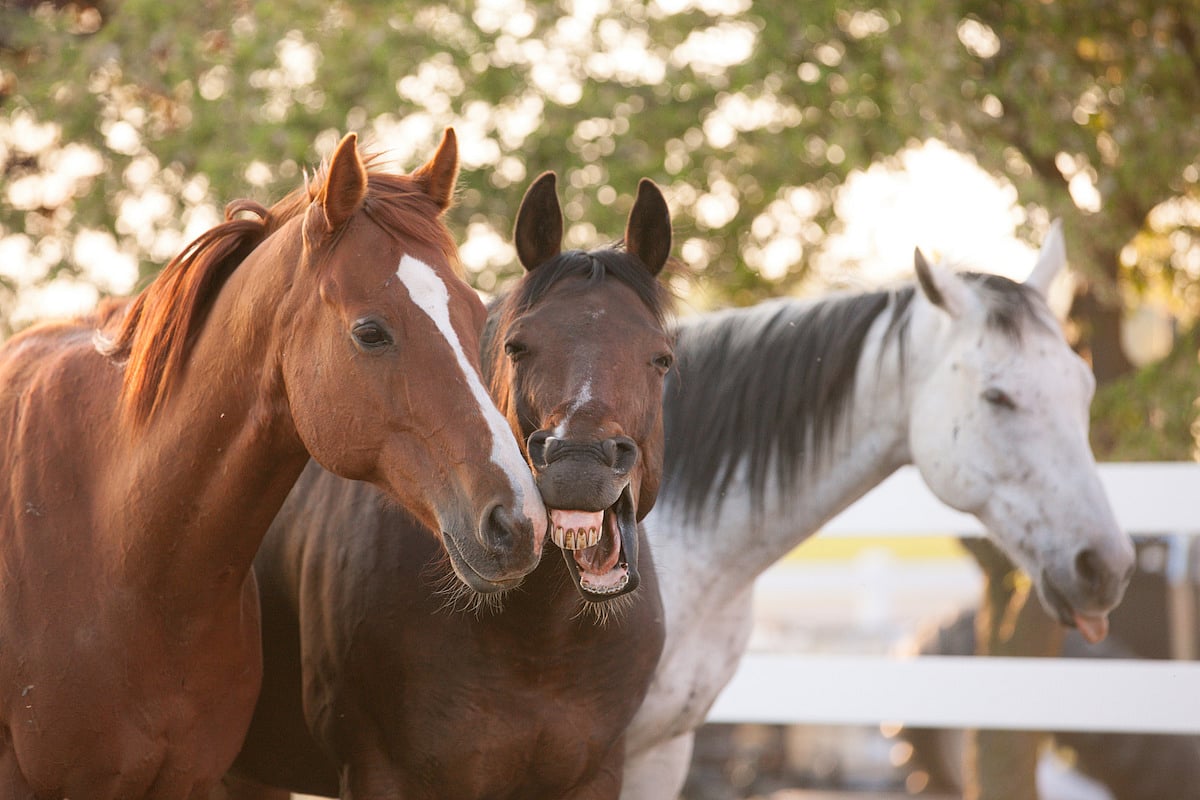Get Healthy!

- Posted August 7, 2024
Miscarriages in Horses Offer Insights to Help Prevent Human Miscarriages
WEDNESDAY, Aug. 7, 2024 (HeathDay News) -- Researchers are gleaning important insights into miscarriages in women from an longtime four-legged friend: horses.
It shouldn't come as a surprise, since female horses have long pregnancies (11 months) and embryos of both species grow at similar rates, said a team overseen by Mandi de Mestre, a professor of equine medicine at Cornell University in New York.
Their new research found that almost half (42%) of miscarriages and spontaneous abortions that occurred in horses during the first two months of pregnancy were linked to a chromosomal condition called triploidy.
With triploidy, the fetus contains an extra set of chromosomes that can cause complications leading to pregnancy loss, the researchers explained.
So, horses make a good model for human pregnancies because, "over that embryonic period [up to eight weeks from conception], triploidy had rarely been reported in mammals outside of women,” de Mestre noted in a Cornell news release.
“The study tells us that over the first six weeks of gestation, this will likely be the primary cause of pregnancy loss following natural conception," she added.
Her team published its findings Aug. 5 in the Proceedings of the National Academy of Sciences.
According to the research team, about 10% to 20% of human pregnancies will end in miscarriage, and chromosomal aberrations are thought to be a major cause.
But until now, scientists haven't had an adequate animal model for human miscarriages. In the new study, they analyzed 256 fetus and placenta samples from veterinarians who had treated horses with failed pregnancies over a period of 10 years.
“We were able to study the impact of chromosome errors across the entire pregnancy in the horse,” de Mestre said. “We found that triploidy is only associated with losses in early pregnancy.”
Chromosomal errors occurred in 57.9% of pregnancy losses up to day 55 of gestation and in 57.2% of losses between days 56 and 110.
In contrast, only 1.4% of losses between days 111 and the end of pregnancy were associated with chromosomal errors like triploidy.
Aneuploidy -- the gain or loss of a chromosome -- was tied to miscarriages in the first 10 weeks of pregnancy, de Mestre's group reported, while deletions or duplications of a segment of a chromosome were largely detected in miscarriages after 110 days.
That mirrored similar findings among women who had miscarried. Most human miscarriages occur at home, the research team noted, so there's little for researchers to work with if they hope to uncover why miscarriages occur.
Using the horse as a model might rectify that situation, they said. Horses' owners typically provide a high level of care and monitoring to their animals during a pregnancy, offering much data that's useful for research.
The new research can certainly help horses.
For example, if it's determined that a major chromosomal error is present early in an equine pregnancy, veterinarians can move to end the pregnancy, de Mestre's team said.
“This research has provided a foundation for understanding the genetic causes of pregnancy loss in horses, often referred to as pregnancy loss of unknown cause,” said study co-first author Shebl Salem, a postdoctoral researcher in de Mestre’s Equine Pregnancy Lab.
More information
Find out more about miscarriage at the March of Dimes.
SOURCE: Cornell University, news release, Aug. 5, 2024







